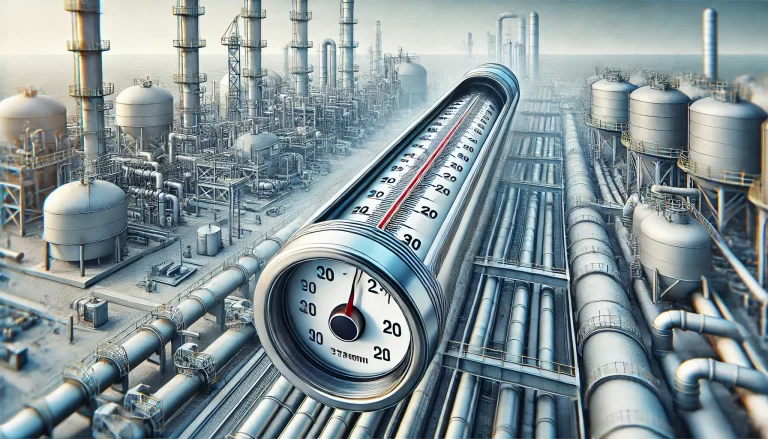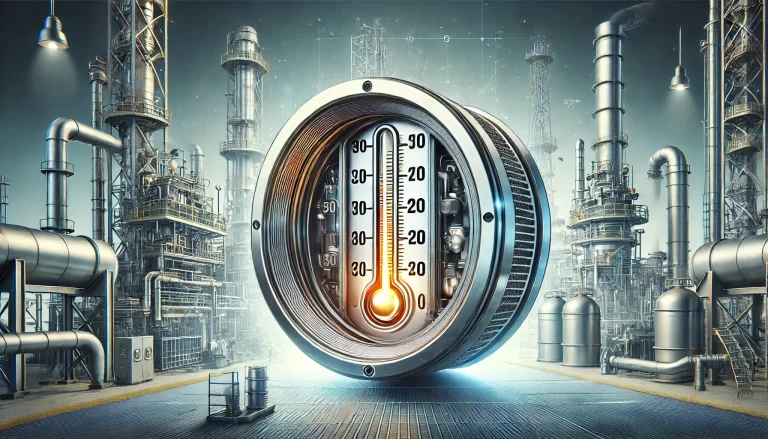Bimetallic thermometers are widely recognized for their high precision and reliability in industrial measurement. However, these instruments often face harsh environmental challenges during use, which may affect their performance and longevity. This is where stainless steel sleeves come into play as essential protective components. Let’s explore the key features, benefits, and maintenance tips for stainless steel sleeves in safeguarding bimetallic thermometers.
The Unique Material Properties of Stainless Steel Sleeves
Stainless steel sleeves are typically made of alloy steel, renowned for its exceptional corrosion resistance and durability under extreme conditions. Key material advantages include:
- Corrosion Resistance: Stainless steel effectively withstands exposure to chemicals, humidity, and oxidizing agents, ensuring consistent performance in corrosive environments such as chemical plants or offshore installations.
- High-Temperature Resistance: The material’s ability to retain strength and stability at elevated temperatures protects thermometers used in heat-intensive processes.
- Mechanical Strength: Stainless steel’s robust structure shields thermometers from physical impacts during transport or operation, reducing the risk of damage.
By leveraging these properties, stainless steel sleeves significantly extend the service life of bimetallic thermometers, reducing maintenance costs over time.

Multifunctional Protection Beyond Physical Shielding
A stainless steel sleeve does more than just provide a physical barrier; it serves multiple purposes to enhance the functionality of bimetallic thermometers:
- Preventing Contamination: The sleeve blocks dust, dirt, and other contaminants, ensuring accurate measurements in environments like manufacturing plants or food processing facilities.
- Mitigating Environmental Interference: By isolating the thermometer from rapid temperature fluctuations in the surroundings, the sleeve ensures more stable and reliable readings.
- Leak Prevention: With its excellent sealing properties, the sleeve prevents liquid or gas leaks, enhancing the safety and reliability of the measurement system.
- Pressure and Stress Resistance: The sleeve can handle high-pressure environments, protecting the thermometer from structural strain and ensuring its integrity.
These versatile features make stainless steel sleeves indispensable in industries requiring precise and reliable temperature monitoring.
Best Practices for Installation and Maintenance
To fully realize the protective benefits of stainless steel sleeves, proper installation and regular maintenance are critical:
- Secure Installation: Ensure the sleeve is tightly fitted to the thermometer, avoiding loose connections that could lead to measurement inaccuracies or exposure to damaging elements.
- Routine Inspections: Periodically check the sleeve for signs of wear, corrosion, or damage. Replace any compromised sleeves promptly to maintain optimal protection.
- Cleaning and Maintenance: Clean the sleeve as needed, especially in environments where residues or debris may accumulate. This prevents blockages or interference with the thermometer’s function.
By adopting these best practices, users can maximize the lifespan and efficiency of their bimetallic thermometers in various operational settings.

Real-World Applications and Case Studies
Consider the example of a chemical processing facility where corrosive substances and extreme temperatures pose significant risks to instruments. A stainless steel sleeve not only extends the thermometer’s lifespan but also ensures reliable temperature data crucial for maintaining process safety and efficiency. Similarly, in the food and beverage industry, where hygiene and accuracy are paramount, the sleeve prevents contamination while ensuring compliance with regulatory standards.
Conclusion: The Vital Role of Stainless Steel Sleeves
Stainless steel sleeves play an essential role in safeguarding bimetallic thermometers by offering comprehensive protection against environmental challenges. Their ability to enhance durability, reliability, and measurement accuracy makes them a worthwhile investment for industries requiring precise temperature monitoring.
To ensure your bimetallic thermometers remain in optimal condition, prioritize the selection of high-quality sleeves and adhere to proper installation and maintenance practices. If you’re looking for premium bimetallic thermometers and protective sleeves tailored to your needs, contact us today. Our team is ready to provide expert guidance and high-quality solutions for your specific applications.
